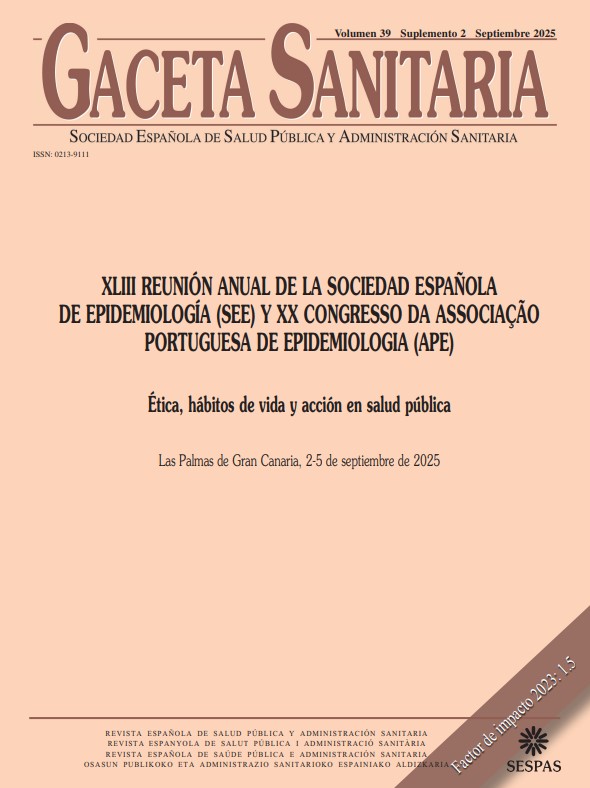201 - PEOPLE WHO SMOKE SUPPORT BANNING SMOKING IN OPEN SPACES IN SPAIN
Unidad de Control del Tabaco, Instituto Catalán de Oncología-Centro Colaborador de la OMS; Grupo de Investigación en Control del Tabaco, Instituto de Investigación Biomédica de Bellvitge; Centro de Investigación Biomédica en Red de Enfermedades Respiratorias, Instituto de Salud Carlos II; Departamento de Salud Pública, Salud Mental y Enfermería Maternoinfantil, Facultad de Enfermería, Universidad de Barcelona; Departamento de Salud Pública, Salud Mental y Enfermería Maternoinfantil, Facultad de Enfermería, Universidad de Barcelona; Departamento de Ciencias Clínicas, Facultad de Medicina y Ciencias de la Salud, Universidad de Barcelona; Department of Psychology, University of Waterloo, Waterloo, Canada; School of Public Health Sciences, University of Waterloo, Waterloo, Canada; Secretaría de Salud Pública, Departamento de Salud, Gobierno de Cataluña.
Background/Objectives: Spain implemented an extensive smoking ban in outdoor spaces during the COVID-19 pandemic in 2020. This study examines support for this restriction among people who currently smoke and formerly smoked during and beyond the pandemic.
Methods: Data are from the 2021 ITC EUREST-PLUS Spain Survey. The survey used a multistage sampling design to obtain a representative sample of people who currently or formerly smoked (n = 1,006). We estimated prevalence ratios (PR) to examine variables associated with ban support during the pandemic and beyond. Analyses accounted for the complex sampling design and were weighted to ensure representativeness.
Results: 79% of current smokers and 95% of former smokers supported the outdoor smoking ban during the pandemic. Support for a permanent ban remained substantial, at 61% and 87%, respectively. Those who currently smoke were significantly more likely to support bans during and after the pandemic if they had smoke-free homes (PR = 1.11; PR = 1.29, respectively), understood secondhand smoke harms to health (PR = 1.40; PR = 1.65), had tried to quit (PR = 1.14; PR = 1.30), and self-reported as healthy (PR = 1.40; PR = 1.47). Those who formerly smoked were more likely to support bans during the pandemic if they had smoke-free homes (PR = 1.08) and did not self-reported as healthy (PR = 0.95) and after the pandemic, if they had quit smoking and used alternative tobacco products (PR = 1.23; PR = 1.17, respectively).
Conclusions/Recommendations: Strong support exists for outdoor smoking bans, exceeding previous findings of support in Spain. Policymakers should consider this evolving view for stronger tobacco control policies.
Funding: The ITC EUREST-PLUS Spain Survey was partially funded by the Instituto de Salud Carlos III (grant PI17/01338, co-funded by European Regional Development Fund ERDF, a way to build Europe) and the Canadian Institutes of Health Research (Foundation grant FDN-148477).















